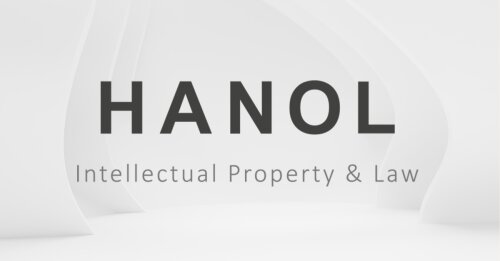Best Intellectual Property Lawyers in South Korea
Share your needs with us, get contacted by law firms.
Free. Takes 2 min.
Or refine your search by selecting a city:
List of the best lawyers in South Korea
About Intellectual Property Law in South Korea
Intellectual Property (IP) in South Korea is governed by a robust legal system that aims to protect the creations and inventions of individuals and corporations. The country recognizes the importance of IP in fostering innovation and economic growth. South Korea is a member of major international IP treaties, such as the Agreement on Trade-Related Aspects of Intellectual Property Rights (TRIPS) and the World Intellectual Property Organization (WIPO) treaties. The key areas of IP law in South Korea include patents, trademarks, copyrights, and industrial designs, each governed by specific legislation designed to protect creators and innovators.
Why You May Need a Lawyer
Engaging a lawyer in the field of Intellectual Property (IP) may become essential in various situations. For example, individuals or businesses seeking to patent a new invention or trademark a brand name will benefit significantly from legal expertise to navigate the complex application processes. Additionally, if there is a need to enforce IP rights due to infringement, resolve disputes, or draft licensing agreements, a skilled lawyer can provide pivotal assistance. IP lawyers also play a critical role in advising on compliance with local and international IP laws, protecting business interests, and conducting due diligence during mergers and acquisitions involving IP assets.
Local Laws Overview
South Korean IP law is comprised of several statutes. The Patent Act covers the protection of inventions, with a focus on promoting technological advancements. The Trademark Act allows for the registration and protection of marks that distinguish goods and services. The Copyright Act provides protection to authors and creators for their original works, including literary, musical, and artistic works. The Design Protection Act focuses on the protection of new and original designs. Enforcement of these laws is supported through specialized courts, such as the Korean Intellectual Property Office (KIPO) and the Patent Court of Korea, ensuring IP disputes are resolved effectively.
Frequently Asked Questions
What types of inventions can be patented in South Korea?
An invention must be new, involve an inventive step, and be industrially applicable to be patented in South Korea. This includes products, processes, and new uses of existing inventions.
How long does trademark registration take in South Korea?
The trademark registration process in South Korea typically takes around 12 to 18 months, depending on the complexity of the application and any opposition proceedings.
Are software and algorithms patentable in South Korea?
Yes, software and algorithms can be patented in South Korea, provided they meet the criteria for inventions, particularly having a technical character that contributes to a technological solution.
How can I enforce my intellectual property rights in South Korea?
IP rights can be enforced through civil litigation, seeking injunctions, and compensation for damages. The Patent Court of Korea and the district courts handle IP enforcement and litigation.
What is the duration of copyright protection in South Korea?
In South Korea, copyright protection lasts for the life of the author plus 70 years following their death. For corporate works, it is 70 years from publication.
Can foreign companies register trademarks in South Korea?
Yes, foreign companies can register trademarks in South Korea. It is recommended to engage a local IP lawyer to navigate the process and ensure compliance with local laws.
What remedies are available for trademark infringement?
Remedies for trademark infringement in South Korea include injunctions, monetary damages, and the destruction of infringing goods.
Is there a grace period for filing a patent application after publication?
Yes, South Korea offers a grace period of 12 months from the date of disclosure within which a patent application can be filed without affecting its novelty.
Can a design be protected without registration?
No, design protection requires registration under the Design Protection Act to confer exclusive rights to the holder in South Korea.
What is the role of the Korean Intellectual Property Office (KIPO)?
KIPO is responsible for the administration and examination of patents, trademarks, and designs in South Korea. It also provides information and support related to intellectual property rights.
Additional Resources
For those seeking more information or legal support regarding Intellectual Property in South Korea, the following resources may be useful:
- The Korean Intellectual Property Office (KIPO) - offers resources and guidance related to IP law and enforcement in South Korea.
- The Korea Copyright Commission - provides guidance on copyright issues and dispute resolution.
- World Intellectual Property Organization (WIPO) - offers international IP resources and training.
- Korean Bar Association - can help in finding a legal professional specializing in IP law.
Next Steps
If you require legal assistance in the field of Intellectual Property in South Korea, consider the following steps:
- Consult with a qualified IP lawyer to discuss your specific needs and concerns.
- Conduct a preliminary search to ensure your invention or trademark is unique before applying for protection.
- Prepare documentation and materials needed for filing applications or legal proceedings.
- Stay informed about changes in IP laws and keep your registrations and documentation up to date.
By taking these steps, you can effectively navigate the complexities of Intellectual Property law in South Korea and safeguard your creations and innovations.
Lawzana helps you find the best lawyers and law firms in South Korea through a curated and pre-screened list of qualified legal professionals. Our platform offers rankings and detailed profiles of attorneys and law firms, allowing you to compare based on practice areas, including Intellectual Property, experience, and client feedback.
Each profile includes a description of the firm's areas of practice, client reviews, team members and partners, year of establishment, spoken languages, office locations, contact information, social media presence, and any published articles or resources. Most firms on our platform speak English and are experienced in both local and international legal matters.
Get a quote from top-rated law firms in South Korea — quickly, securely, and without unnecessary hassle.
Disclaimer:
The information provided on this page is for general informational purposes only and does not constitute legal advice. While we strive to ensure the accuracy and relevance of the content, legal information may change over time, and interpretations of the law can vary. You should always consult with a qualified legal professional for advice specific to your situation.
We disclaim all liability for actions taken or not taken based on the content of this page. If you believe any information is incorrect or outdated, please contact us, and we will review and update it where appropriate.
Browse intellectual property law firms by service in South Korea
South Korea Attorneys in related practice areas.
Browse intellectual property law firms by city in South Korea
Refine your search by selecting a city.















